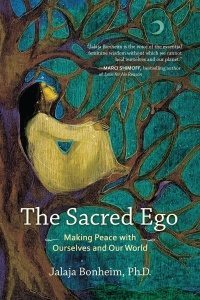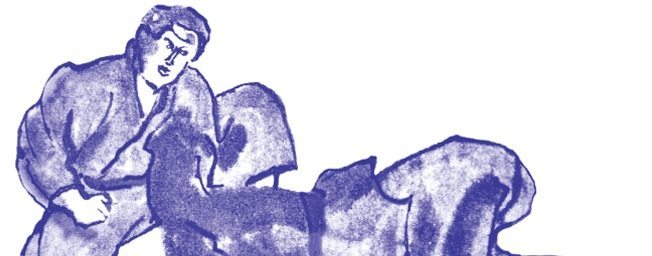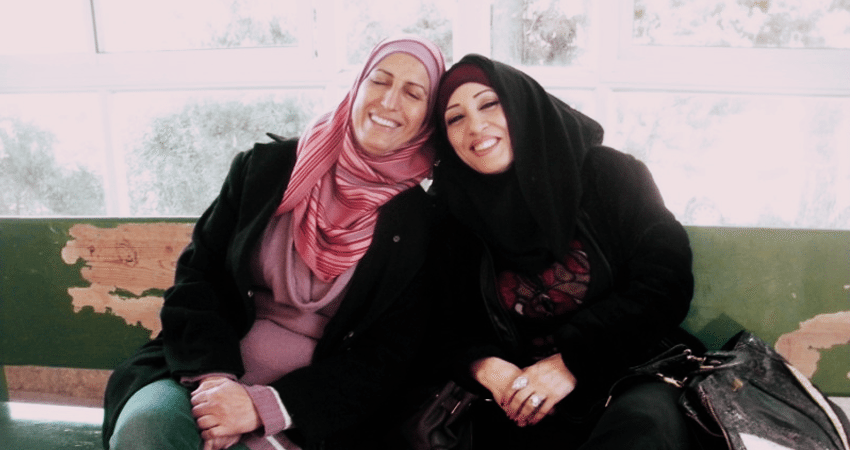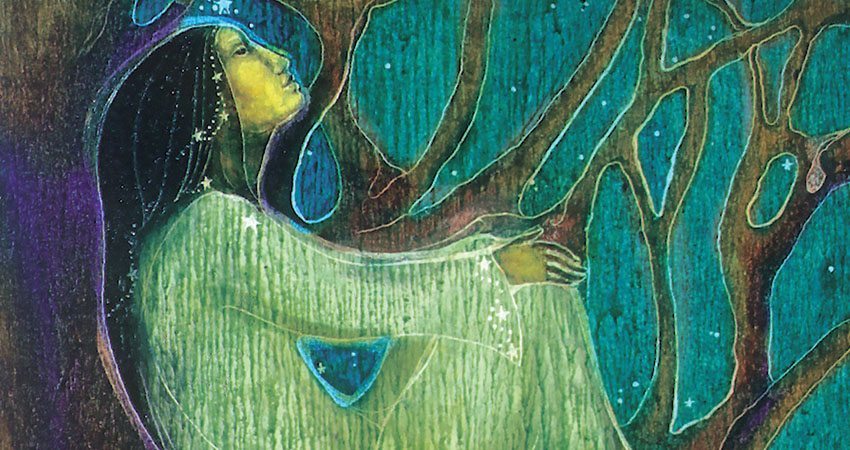
Sacred Beings and Peace-Makers: An Interview with Jalaja Bonheim
Categories: Interview Psychology & Personal Growth
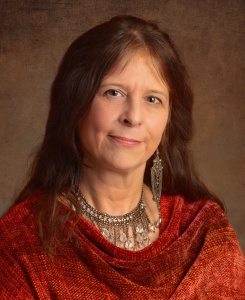 Jalaja Bonheim agreed to answer a few questions for us about the Circlework she does, her childhood as a Jewish German, her work with Palestinian and Jewish women, and her upcoming book The Sacred Ego. We’re delighted to be publishing Jalaja’s book on July 28 and hope you enjoy getting to know more of her story here.
Jalaja Bonheim agreed to answer a few questions for us about the Circlework she does, her childhood as a Jewish German, her work with Palestinian and Jewish women, and her upcoming book The Sacred Ego. We’re delighted to be publishing Jalaja’s book on July 28 and hope you enjoy getting to know more of her story here.
NAB: You’re German and you’re also Jewish. How did growing up as a Jew in Germany affect you?
Jalaja: After WWII both the German and the Jewish people were utterly devastated. And since I was both German and Jewish, the horror of recent events was really in my face. Yet in my family, nobody talked about it.
Then I discovered that terrible atrocities had occurred, and were still occurring, in many other parts of the world as well. So I figured something had to be terribly wrong with our species. Why else would we keep creating hell on earth? I asked many people, but their answers never satisfied me. That burning need for a deeper understanding sent me on a lifelong quest. Only after several decades of leading circle gatherings for people from all walks of life did the insights emerge that inspired me to write The Sacred Ego.
From Germany you went to India, where you studied Indian temple dance. What drew you to India?
I was fascinated with India even as a child. When I finally went there, the experience completely transformed me on every level. The practice of temple dance introduced me to the sacred feminine as an embodied, sensual, sexual force. Ever since, I’ve been helping women explore what it means to be a priestess in the 21st century, and how they too can draw upon ancient lineages that are still very much alive within us. I believe that if we, as women, can embody our deepest, most authentic essence, then we can heal our world.
In your book, you claim that the feminine is key to our personal and collective healing. How do you define the feminine and why do you consider it essential to peace?
For there to be peace on earth, there has to be peace between men and women. Just look at cultures where women are most oppressed and you’ll see that they tend to be war zones. Unfortunately, women in many parts of the world are still suffering from horrendous oppression.
That’s one piece of the puzzle. Another is that because our culture is still basically patriarchal, there’s a whole slew of qualities that we categorize as “feminine” and therefore as inferior and unmanly—gentleness, tenderness, and compassion to name just a few. Yet these are the very qualities we need to cultivate if we hope to create a more peaceful world. Of course they aren’t really “feminine” at all, they’re simply human. Tragically, many people, both men and women, are determined to look tough and invulnerable, but people who can’t be vulnerable can’t heal themselves and tend to get trapped in patterns of addiction, depression, and violence. The more we honor the feminine within ourselves, the greater our capacity grows to serve as peace-makers and peace-keepers.
Why do you call the ego “sacred”? What does that mean?
I believe that we are sacred beings. It’s not that one part is sacred and another isn’t. All of us is sacred, including that web of self-serving impulses we call the ego. The problem isn’t that the ego is self-serving. The problem is that at the moment it’s not serving us well. In fact, it’s threatening to destroy us. However, the solution is not to get rid of it. We’ve tried that, and it doesn’t work. Instead, we need get to know our ego, really know it. As long as we judge it, that can’t happen, because judgment pulls a veil over our eyes.
Many people assume the ego is just a fact of life, like thunderstorms or old age. They don’t ask the deeper questions: Where does it come from? How did it evolve? These are some of the questions I ask in The Sacred Ego. The more we really understand it, the deeper our respect and reverence will become. Instead of seeing the ego as an obstacle or a hindrance or curse, we then recognize and honor it as a sacred gift.
If the ego is an essentially positive force, why does its impact on our lives seem to be so negative?
To be healthy and function well, the ego needs to be informed by the heart. Unfortunately, our culture has severed the heart-ego connection. Cut off from the guidance and governance of the heart, the ego has become foolish and short-sighted. It can no longer set wise goals. In fact, I would describe it as mentally ill. If a mentally ill person behaves in destructive ways, you don’t just kill them. You try to understand what’s going on and how to help them. That’s what we need to do with our ego. In The Sacred Ego, I try to explain how the ego is sickness evolved and how we can heal it.
You speak of the ego as being governed by tribal conditioning. What is tribal conditioning?
Western psychology and spirituality focus almost exclusively on the individual. But the ego’s dysfunctional behaviors aren’t sourced in our personal experience. They evolved centuries or even millennia ago. So to really understand our ego, we need to take a much broader perspective. When we do, one of the first things we see is that for 99.9% of human history, everyone lived in small tribal groups. What I call tribal conditioning is a complex web of habits, beliefs, and behavioral patterns that evolved in response to the experience of tribal life, which remained the norm for hundreds of thousands of years.
Today, we’ve become a single global community. Yet we still think and relate as if the tribal era had never ended. For example, most people still view others as belonging to “us” or “them.” For people who lived in a small, isolated tribe, this made total sense, but in our day and age, it’s a deadly habit that is no longer sustainable.
You tell a great story about a man whom you had pegged as a redneck and your choice to view him with what you call “Sacred Eyes.” Could you share that story?
Sure. I was leading a women’s retreat on the California coast. Before we went on our lunch break, I gave everyone a piece of homework. The homework was that whenever they encountered someone, they were to inwardly honor that person as a sacred being.
Well, next thing I know, I’m talking to this guy who in my eyes is definitely not a sacred being. He’s a redneck and he’s getting on my nerves with his questions about why I’m sitting in his café.
But homework is homework. So inwardly, I start talking to him and apologizing for my knee-jerk judgments, and really honoring the sacred presence within him.
Then he disappears, and I sit there for a long time enjoying the view. But when I get up to leave, he suddenly rushes out from the kitchen and tells me to wait.
Well, you don’t insult a sacred being, so I waited, and when he returned, he was carrying three steaming hot pies that he’d just baked. He got all shy and then he explained that I’d mentioned I was leading a retreat for 20 women, so he decided to bake us some pies.
I was just speechless! It was like Spirit was showing me, “Look here, this is the kind of magic that happens when we really treat each other as sacred beings.” Our respect and reverence calls forth the best in others.
What is the experience of Circlework like? What should someone expect who decides to attend one of your circle gatherings?
Circlework creates an environment where we feel safe. We feel heard, seen, and honored, so our hearts begin to open like flowers under the sun.
Circlework is an extremely spacious practice. I think we’re all hungry for a sense of spaciousness. We need places where we can slow down and let go and come home to ourselves. From that place of peaceful connection to ourselves, our relationships to others begin to transform as well. A deep sense of intimacy and connection emerges and we start falling in love. I’m not talking about love in a romantic sense, but about a field of presence that we co-create and that calls forth our true nature.
Circlework doesn’t endorse any particular set of spiritual beliefs, but it evokes a very natural sense of sacredness and spiritual presence. Like any spiritual practice, it isn’t something you do just once. The more you do it, the deeper the experience becomes. The circle then awakens within you as an archetypal source of wisdom and guidance that accompanies you, wherever you go.
You work in the Middle East, where you bring Jewish and Palestinian women together. What happens in those circles? Do their attitudes change as a result?
Both the Jewish and the Palestinian women I work with have an amazing capacity for joy and celebration. But many of them are carrying a heavy load of trauma. In my opinion, nowhere near enough is being done to address that trauma, and until it is, the violence will continue. This is why I feel such a passionate commitment to offering spaces where healing can occur. Also, I train the women in circle leadership so they can facilitate their own circles.
I just described the circle as a space where people fall in love with each other. You might think it wouldn’t happen between people who’ve been taught to view each other as enemies, but it does. That’s the power and magic of Circlework.
Obviously, leading circles in the Middle East is very different than in the United States. We’re working in three different languages. There are cultural differences, political and religious differences. Yet ultimately, we get to the same place, which is a place of complete, unconditional love. We might disagree on many issues, but those disagreements are lodged in the mind. In the circle, we connect heart to heart and soul to soul. We honor the mind, but we don’t let it run the show.
In your book, you distinguish between heart-thinking and head-thinking. Explain what you mean by those terms.
When we’re thinking with our heads, we lose touch with our heart and body. We’re fragmented instead of whole. Because this is how our culture teaches us to think, we take it for granted, yet it’s actually not an effective way of using our mind. The mind functions far better when we allow our heart to lead the way.
Only when we’re centered in our heart, and in touch with its wants and desires, can we use our mind in the best possible way: in service of the heart. Like a GPS, the mind can help our heart fulfill its longing.
Now you might object that the heart can’t think. However, modern medicine is discovering that the heart actually does have a mind and an intelligence of its own. It can and does think, though not in the same way as the brain.
Both heart and mind suffer when they’re separated. Each needs the other to function optimally. Head-thinking often seems very clever. However, to access true intelligence, we need to practice heart-thinking, which fuses heart and mind into a single organ of compassionate wisdom.
How can people contact you and get involved in your work?
I love hearing from people! The easiest way to contact me is through www.sacredego.com. There, you’ll find guidelines for study groups, articles, information about events and much more. Also, go to www.circleswork.org for more information about Circlework. I’m also on Facebook at www.facebook.com/sacredego.
Tags: Sacred Activism Self-Improvement & Inspiration Spiritual Psychology Jalaja BonheimABOUT JALAJA BONHEIM’S UPCOMING BOOK
Why have we failed to create the happy, peaceful world that we all want? And what can we do about it? For more than three decades, Jalaja Bonheim has explored these questions in her work with women leaders, activists, and spiritual seekers from around the world.
In The Sacred Ego, she tackles one of the core myths of popular spiritual culture—the myth of the ego, supposedly responsible for our greed, selfishness, and violence. In contrast, Bonheim approaches the ego as a sacred function worthy of honor and gratitude. With riveting stories from her work, she guides us into the depths of our collective psyche to pinpoint the real sources of our problems and illuminate our path to wholeness. Firmly grounded in a lifetime of practical experience, The Sacred Ego is a visionary, uplifting book that explains why our world is in crisis and how we can support the unprecedented transformational process that’s underway.

